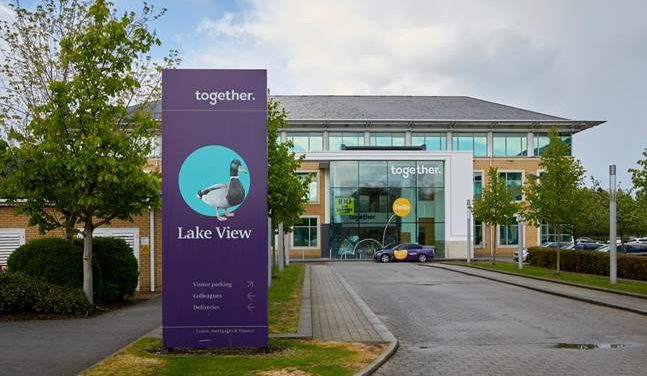New research from Masthaven Bank finds half of UK homeowners believe they could not get a mortgage today
By Bridging Loan Directory
According to a new report by challenger bank Masthaven, the mortgage market is not in tune with modern consumers’ evolving needs; the world has changed and the mortgage industry needs to play catch up. Today the bank publishes new data which indicates that UK householders sense a ‘computer says no’ mentality from mortgage lenders.
Masthaven’s Game of Loans report found many people surveyed believe they wouldn’t get a mortgage today. The poll, conducted by Opinium, reveals that both would-be and existing homebuyers are unsure if lenders would support them: 60% of the adults surveyed believe that if they were to buy a home today, it would be hard to get a mortgage. The bank is concerned that half (50%) of all adults who are homeowners surveyed feel this way; and it’s worried that they may feel like mortgage prisoners.
The new study – comprising two surveys of over 2,000 UK adults, in January and July 2017 – found that almost two in three (65%) people polled believes that getting a mortgage is about ‘box ticking’ not the reality of someone’s situation. This opinion has risen markedly by ten percentage points (from 55%) since the first poll in January.
It also highlights how people feel the mortgage market must adapt to appreciate their changing lives – a large majority (81%) of people surveyed believe lenders should make an effort to understand homebuyers’ individual circumstances. This view is strong among people aged 55 or over (88%), UK homeowners (84%) and parents (82%).
Age is a contentious issue
Nearly three in four (74%) people surveyed said they feel that meeting repayment criteria should determine mortgage eligibility, not age. Moreover, three in five (60%) of those surveyed believes that everyone who can afford the repayments when they retire should be eligible for a mortgage. This view has risen up from 53% since the January poll.
Commenting on the findings, Jon Hall, Managing Director of Masthaven said:
“Just as homes have kerb-appeal to buyers, it seems people have a perceived sense of their own mortgage-appeal to lenders. Our report highlights how many people believe they have low or no appeal to mortgage lenders; they have little faith in the market. Whether these homeowners’ beliefs are founded or not, the industry cannot ignore how customers feel – their perceptions need attention. I believe the industry can adapt, and we’re publishing the report to encourage lenders to look at the new face of home borrowing: ordinary people with normal lives. The UK mortgage industry must create products and processes that are fit-for-purpose for society today – a world that’s rapidly evolved and looks different to even just a few years ago.”
Time for change
Game of Loans examines four audiences segments: self-employed, older borrowers, parents, and younger borrowers. Masthaven suggests that, despite new mortgage regulations providing a more stable framework, lenders have not adapted their approaches to cope with evolving financial lives. The bank is urging lenders to look closer at individual borrowers’ lives, so they can create products and processes that are fit for modern life. For example:
•Self-employed: Given the continuing rise of this workforce, the mortgage industry needs to take a fresh look at how it can support them. Affordability models need to reflect the concept of self-employed income; in many instances self-employed borrowers cannot even get past the initial mortgage selection criteria and progress their case to a trained mortgage underwriter, who would have the skills to be able to read and assess their company accounts.
•Parents: The robust affordability criteria have been set for a very good reason, but in many cases parents believe they can afford to make the mortgage repayments. Responsible lenders should be working with brokers to help find affordable solutions that are fit for modern families.
•Younger borrowers: Continued innovation is needed to help first-time buyers onto the property ladder. From unlocking intergenerational wealth and helping grandparents and parents with equity in their homes support their families, to boosting the building of affordable homes.
•Older borrowers: The old adage of paying off your mortgage pre-retirement simply isn’t realistic for many people today. As the Government launches Lifetime ISAs to bolster home ownership for the under 40s, it should also consider solutions for an ageing population which keeps mortgages alive for longer.
Jon Hall added:
“The audiences examined in our report aren’t niche groups on the fringes of society, they’re growing segments of the population with modern needs that a thriving mortgage market must address. It shouldn’t be ‘game over’ for many homebuyers before they’ve even put a foot on the property ladder. As a bank we need to make sure our application of the affordability rules are revisited regularly, to check hard-working householders are not being excluded from the mortgage market. As a specialist lender we put people at the heart of the solution. Manual underwriting drives our decision-making rather than technology, and we work in tandem with brokers to assess customers’ individual needs. I’m concerned to hear so many borrowers feel unsupported when in reality an experienced lender, with flexible processes and great broker partnerships, may be able to help.”
Other key findings
Alongside how difficult they felt it would be to get a mortgage, Masthaven asked people their views on other topics, including: the mortgage process, the UK housing shortage, intergenerational disparity, and lending into retirement.
•Over half (55%) of self-employed respondents believes they would find it hard to get a mortgage today; and 70% of them feel that getting a mortgage is about which financial boxes you ‘tick’, not the reality of your situation.
•Respondents’ perception of their ‘mortgage-appeal’ varied across the UK. Respondents in Wales have the strongest doubts – 72% believe they would find it hard to get a mortgage today, compared to 53% in Scotland. 68% of people in the East of England feel it would be hard, compared to 50% in Yorkshire & Humberside.
•While many (73%) respondents have never used a mortgage broker or adviser, over a quarter (27%) have. Among the latter group, almost one in five (19%) said it was because their circumstances were “complicated”.
•Three in four (75%) respondents believes it is unfair the young are struggling to get onto the housing ladder today. This view rises to 78% among people aged 55 or over. It drops to 72% among men, but rises to 78% among women.
•Many people surveyed believe the UK housing gap will grow: 61% predict the shortage of affordable homes will increase in the next five years; this rises to 64% among people aged 55+ and is felt strongest (68%) in Scotland.
•Nearly three in five (58%) respondents believes the price difference between homes in the north and south of the UK will increase in the next five years, but views vary – ranging from 79% in Newcastle to 44% in Cardiff.
•More than two in three (67%) people polled thinks UK interest rates will increase in the next five years; meanwhile almost a third (32%) believes the average wage of homeowners will decrease in the next five years.











You must be logged in to post a comment.